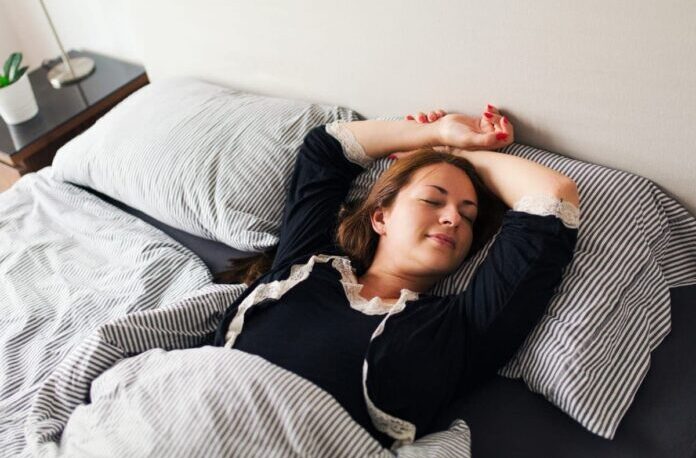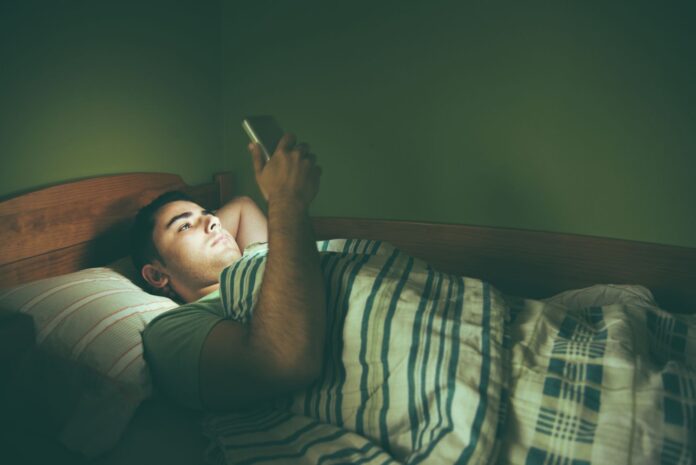
Table of Contents
As the sun sets and the day winds down, how do you prepare for a restful night? The importance of an evening routine cannot be overstated, as it sets the tone for not just your sleep but your overall health.
It’s not merely a sequence of activities but a pathway to a balanced and healthier lifestyle. In this comprehensive guide, we’ll explore various elements to craft an evening routine that aligns perfectly with your health goals.
The Importance of a Consistent Sleep Schedule
Let’s begin with the cornerstone of an evening routine – a consistent sleep schedule. Our bodies operate on a circadian rhythm, a natural, internal process that regulates the sleep-wake cycle and repeats roughly every 24 hours.
Adhering to a regular sleep schedule assists in maintaining this rhythm, leading to improved sleep quality and overall health. The challenge, of course, is consistency. But have you considered the benefits?
From improved mood to better cognitive function, the advantages are far-reaching. It’s about more than just sleep; it’s about establishing a foundation for healthy living.
Relaxation Techniques for Better Sleep

Transitioning to sleep is an art. In our fast-paced world, relaxation techniques are essential. Techniques such as guided meditation, progressive muscle relaxation, or gentle yoga can effectively calm the mind and prepare the body for sleep.
These practices help reduce stress and anxiety, which are often the main culprits behind sleepless nights. Even simple practices like deep breathing exercises can have a profound impact. They signal to your body that it’s time to slow down, unwind, and prepare for rest.
Nutrition and Evening Meals
What we eat before bedtime plays a crucial role in how well we sleep. Heavy or spicy foods can cause discomfort and disrupt sleep patterns. Instead, focus on light and easily digestible meals.
Foods rich in magnesium and potassium, such as bananas or avocados, can help relax muscles and promote better sleep.
Additionally, herbal teas like chamomile or valerian root are excellent for soothing the body and mind before bed. Remember, the goal is to nourish the body without overwhelming it.
Digital Detox for a Restful Night

In our digitally connected world, it’s easy to lose track of time while scrolling through social media or binge-watching TV shows. However, excessive screen time, especially before bed, can significantly disrupt sleep patterns.
The blue light emitted by screens inhibits the production of melatonin, the hormone that regulates sleep. To mitigate this, establish a digital curfew an hour or two before bed.
This not only helps in melatonin regulation but also gives you a chance to engage in more calming activities, like reading a book or practicing relaxation techniques.
Creating a Comfortable Sleep Environment
Your bedroom should be a haven for sleep. The ideal sleep environment is dark, quiet, and cool. Invest in quality bedding and consider using blackout curtains and earplugs if necessary.
The temperature of your room also plays a vital role – the ideal sleeping temperature for most people is around 65 degrees Fahrenheit. A well-curated sleep environment can make a significant difference in the quality of your rest.
The Benefits of Cannabis in an Evening Routine
Incorporating cannabis into your evening routine can have several benefits, especially when it comes to relaxation and sleep. Certain strains of cannabis are known for their calming effects, which can be helpful in managing stress and anxiety, common impediments to good sleep.
However, it’s important to approach this with an understanding of your own body’s response and the legalities in your region. As you consider integrating cannabis into your routine, it’s vital to do so in a way that respects both its potency and your individual needs.
This is where microdosing cannabis comes into play. Microdosing is a method that involves taking small doses to reap the benefits without experiencing a strong psychoactive effect. This practice allows for a controlled and mindful approach to using cannabis.
By starting with a low dose, perhaps as low as 1-2 milligrams of THC, and gradually increasing it, you can find the right balance that works for your body. Microdosing can enhance relaxation and potentially improve sleep quality without the overwhelming effects that can come from higher doses.
Integrating Mindful Reading and Journaling

Incorporating reading or journaling into your evening routine can be incredibly beneficial. Mindful reading, focusing on light and positive material, can be a perfect way to unwind.
Similarly, journaling allows for reflection and processing of the day’s events, providing mental clarity and easing stress. It’s a practice that helps in transitioning your mind from the hustle of the day to a state of relaxation and readiness for sleep.
Exercise and Evening Physical Activity
While vigorous exercise is better suited for earlier in the day, gentle physical activity in the evening can be beneficial. Activities like a leisurely walk or gentle stretching can help release physical tension and stress, preparing your body for rest.
It’s about gentle movement, not intense workouts, to signal to your body that it’s time to wind down.
Listening to Soothing Music or Soundscapes
The power of auditory relaxation should not be underestimated. Listening to soothing music or natural soundscapes can create a serene atmosphere conducive to relaxation and sleep.
Whether it’s the sound of ocean waves, gentle rainfall, or soft, calming music, auditory cues can significantly aid in the relaxation process.
Conclusion
Crafting the perfect evening routine is a personalized journey. It’s about experimenting and finding what works best for you.
From establishing a consistent sleep schedule to potentially incorporating microdosing of cannabis, each element of your evening routine plays a vital role in enhancing your overall health and well-being.
















